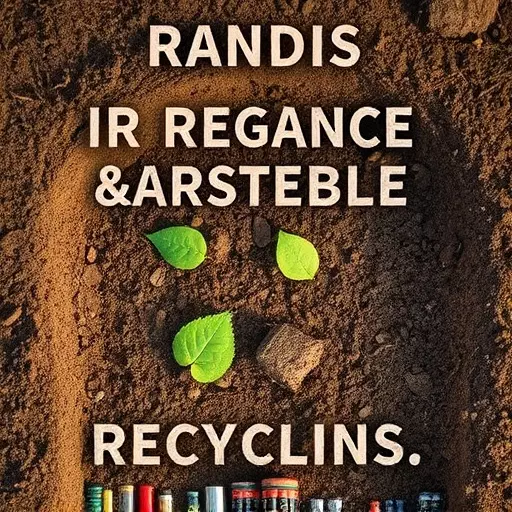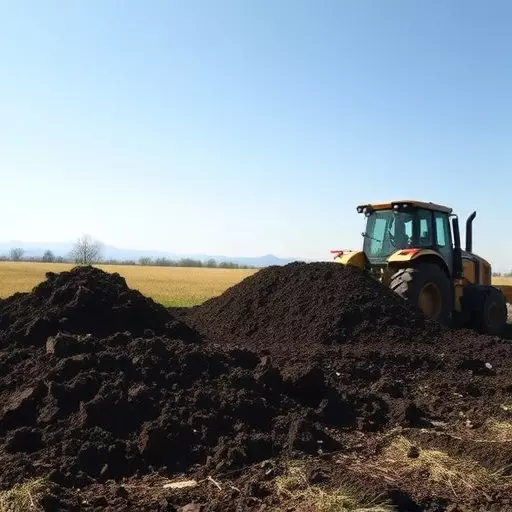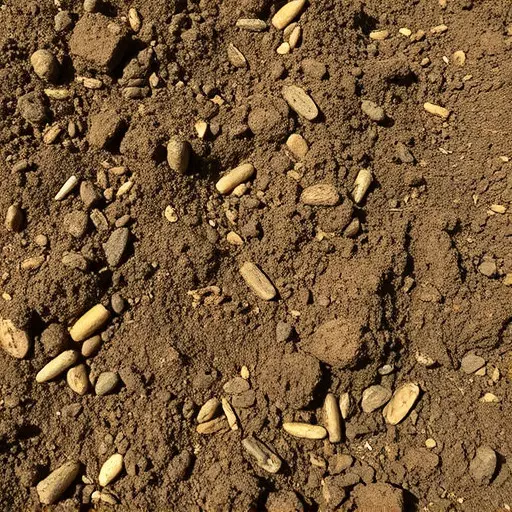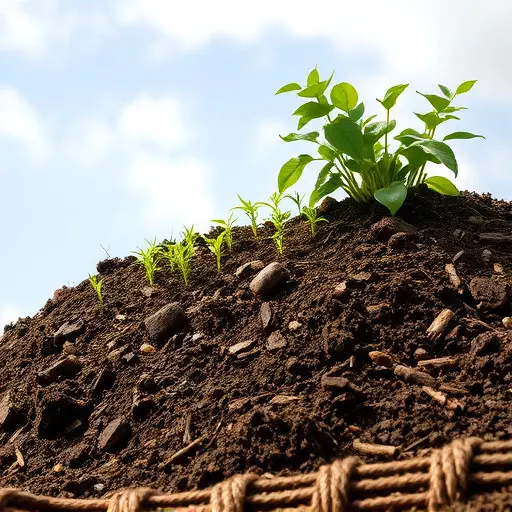Topsoil recycling services in Toledo are revolutionizing soil health by transforming organic waste into nutrient-rich compost and soil amendments, addressing critical nutrient depletion. This innovative approach not only reduces environmental waste but also enhances agricultural productivity, promotes biodiversity, and contributes to a circular economy. By closing the nutrient loop, these services support local farmers, restore ecosystem balance, and foster ecological preservation in Toledo.
Soil nutrients are vital for thriving ecosystems, yet depletion due to erosion, urbanization, and agricultural practices poses significant challenges. Understanding this issue is crucial for implementing effective solutions. This article explores various aspects of soil nutrient restoration, focusing on the role of topsoil recycling services in Toledo as a sustainable approach. We delve into organic waste recycling methods and detail a step-by-step process for restoring soil health, highlighting its benefits for local ecosystems over the long term. Keywords: topsoil recycling services toledo, soil restoration, organic waste recycling.
- Understanding Soil Nutrient Depletion and Its Impact
- The Role of Topsoil Recycling Services in Toledo
- Organic Waste Recycling: A Sustainable Solution
- Step-by-Step Process of Soil Restoration
- Benefits and Long-term Effects on Local Ecosystems
Understanding Soil Nutrient Depletion and Its Impact

Soil nutrient depletion is a significant environmental concern that often goes unnoticed. Over time, agricultural practices can lead to the loss of essential nutrients in the topsoil layer, making it less fertile and productive. This process is exacerbated by factors such as erosion, intense rainfall, and poor land management. The impact of depleted soil extends beyond farming; it affects food security, ecosystem health, and even local economies that rely on agricultural productivity.
In Toledo and surrounding areas, topsoil recycling services have emerged as a sustainable solution to combat this issue. By utilizing organic waste recycling methods, these services divert organic materials from landfills and transform them into nutrient-rich compost or soil amendments. This not only reduces the environmental impact of waste but also restores vital nutrients back into the soil, enhancing its fertility and promoting healthier plant growth.
The Role of Topsoil Recycling Services in Toledo

In Toledo, the role of topsoil recycling services is invaluable in fostering soil restoration and enhancing environmental sustainability. These specialized services focus on transforming organic waste into nutrient-rich topsoil, which is crucial for sustainable agriculture and ecosystem health. By utilizing innovative techniques to recycle materials like food scraps, yard trimmings, and other organic residues, topsoil recycling services play a pivotal role in closing the loop of nutrients, reducing waste sent to landfills, and promoting circular economy practices.
The benefits extend beyond environmental conservation; recycled topsoil is enriched with essential nutrients that improve soil structure, water retention, and fertility, making it an ideal option for landscaping, garden revitalisation, and agricultural purposes. This sustainable practice not only supports local farmers but also contributes to the overall resilience of Toledo’s ecosystem by mitigating soil erosion and promoting biodiversity.
Organic Waste Recycling: A Sustainable Solution

Organic Waste Recycling is a sustainable solution that offers a unique and eco-friendly approach to soil nutrients restoration. By utilizing topsoil recycling services in Toledo, communities can divert significant amounts of organic waste from landfills, where it often decomposes and contributes to greenhouse gas emissions. This process involves collecting organic materials like food scraps, yard trimmings, and even certain types of manure from local sources, transforming them into nutrient-rich compost through controlled decomposition.
The resulting compost is a valuable resource for soil restoration projects, enhancing its structure, fertility, and water-holding capacity. Topsoil recycling services in Toledo play a vital role in promoting a circular economy by encouraging the reuse of organic waste as a topsoil amendment, benefiting local farms, gardens, and even urban green spaces. This method not only reduces environmental impact but also fosters a more sustainable and resilient food system.
Step-by-Step Process of Soil Restoration

Soil restoration is a multifaceted process that involves several steps to revive and enrich depleted soils. The first step in this journey is understanding the current state of the soil through comprehensive analysis, identifying any deficiencies or imbalances. This knowledge acts as a roadmap for the restoration process. Once identified, specific organic waste recycling methods are employed.
The next phase focuses on topsoil recycling services, where organic materials like compost and recycled manures are incorporated into the soil. These natural enrichers not only enhance fertility but also improve soil structure and water retention capacity. As these practices restore balance, the soil becomes conducive to supporting a diverse range of flora and fauna, leading to a vibrant ecosystem. In Toledo and beyond, adopting such sustainable practices can significantly contribute to the health of our lands and the environment as a whole.
Benefits and Long-term Effects on Local Ecosystems

Soil nutrients restoration through topsoil recycling services in Toledo offers significant benefits for local ecosystems. By repurposing organic waste and transforming it into nutrient-rich soil, these services enhance soil fertility, supporting a healthier and more diverse range of plant life. This process not only improves agricultural productivity but also fosters a balance in the ecosystem by reducing the need for synthetic fertilizers that can be harmful to the environment.
The long-term effects of soil restoration are profound. It helps in preserving local biodiversity as plants thrive with improved access to essential nutrients. Additionally, healthier soils lead to better water retention, which is crucial for mitigating drought conditions and supporting aquatic habitats. Organic waste recycling also reduces landfill waste, contributing to a more sustainable and circular economy. These positive changes create a ripple effect, promoting the overall health and resilience of local ecosystems.


